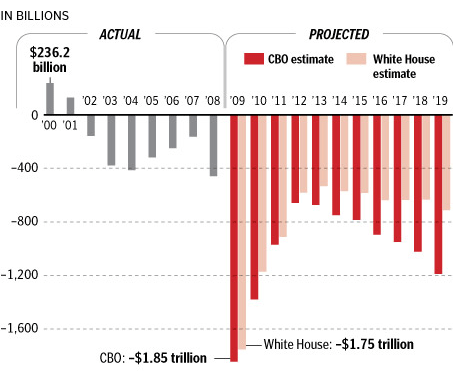WPRI Report: Rebuilding and Modernizing Wisconsin's Interstates with Toll Financing →
This is the real work of "rebuilding America's crumbling roads". And the money involved is going to require everyone to pitch in, especially the people who use Wisconsin's roads the most.
All highways wear out over time, despite ongoing maintenance. Over the next 30 years, most of Wisconsin’s Interstate system will exceed its nominal 50-to 60-year design life and will need complete reconstruction. When that point is reached, it makes sense to update designs to current safety and operational standards, as was done recently in the reconstruction of the Marquette interchange. And in corridors where demand is projected to exceed capacity, resulting in heavy congestion, it makes sense to add lanes.
Wisconsin already has a $1 billion per year highway funding gap. The total $26.2 billion cost of this Interstate program is far beyond the ability of current transportation funding sources to handle. Federal and state fuel tax revenues, the largest source of transportation funding, are in long-term decline in real, or inflation-adjusted, terms, and a portion of Wisconsin’s vehicle registration fee revenue is now committed for several decades to paying debt service on transportation revenue bonds issued since2003 to cover funding shortfalls. General obligation bonds, with general fund debt service, were also issued to make up for recent diversion of transportation fund revenue to the state’s general fund. To rebuild the rural Interstate and southeastern freeway system in a timely manner will require an additional source of transportation revenue.
This study explores the feasibility of using toll revenue financing to pay for this $26.2 billion reconstruction and modernization program. Under the principle of value-added tolling, tolls would not be charged on a corridor until it was reconstructed and modernized. All toll revenues would be dedicated to the rural Interstate and southeastern freeway system corridors, as pure user fees. Based on a 30-year program of reconstruction and assuming moderate toll rates comparable to those on other toll road systems, the study estimates that the entire rural Interstate program could be financed by toll revenue bonds. For the southeastern freeway system, one option is to toll only the new lanes, operating them as express toll lanes. Doing so would produce enough revenue to cover about 17% of the cost of the entire freeway system reconstruction. Tolling would be all electronic, with no toll booths or toll plazas to impede traffic. If political support could be garnered to price all lanes on the southeastern freeway system instead, our analysis estimates that the revenues would cover 71% of the cost of reconstruction.
This entry was tagged. Government Spending Wisconsin
